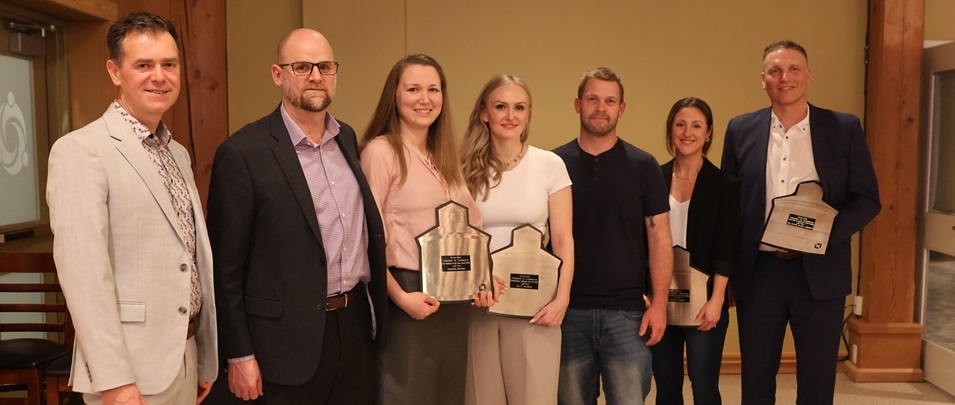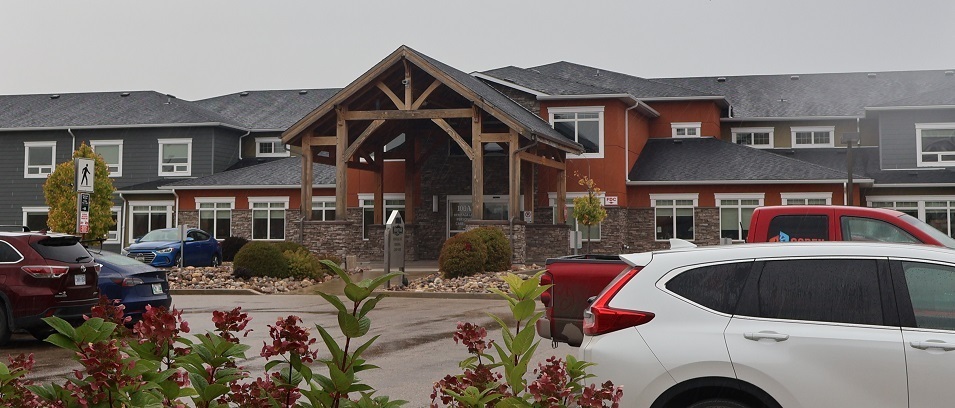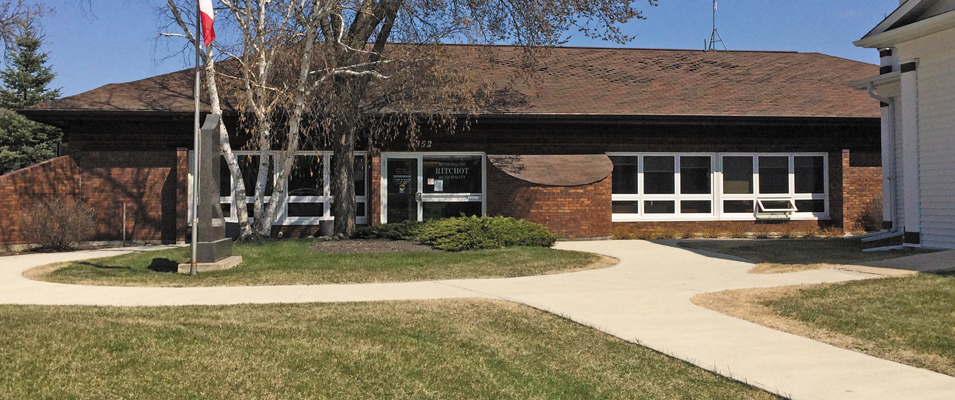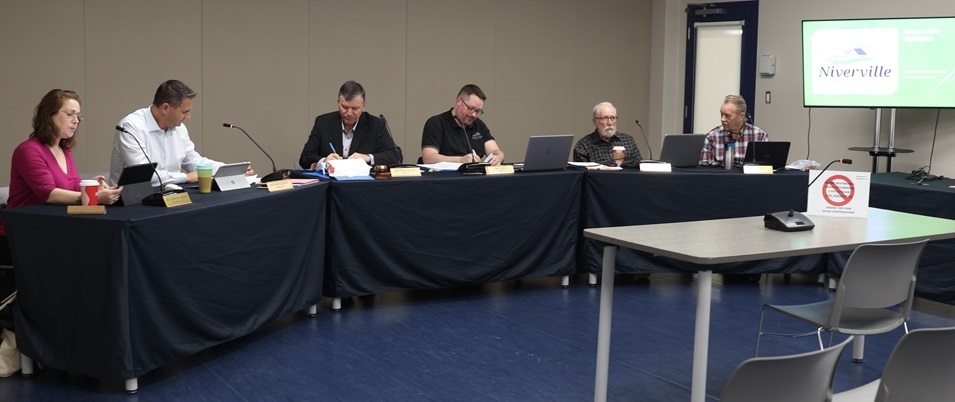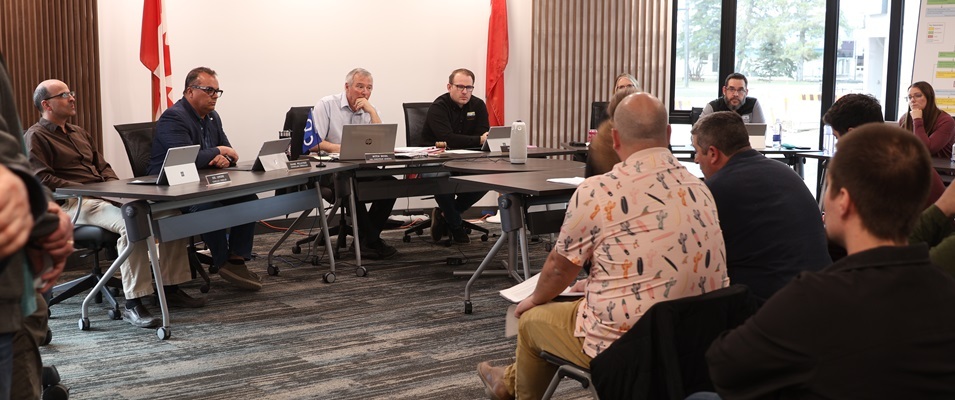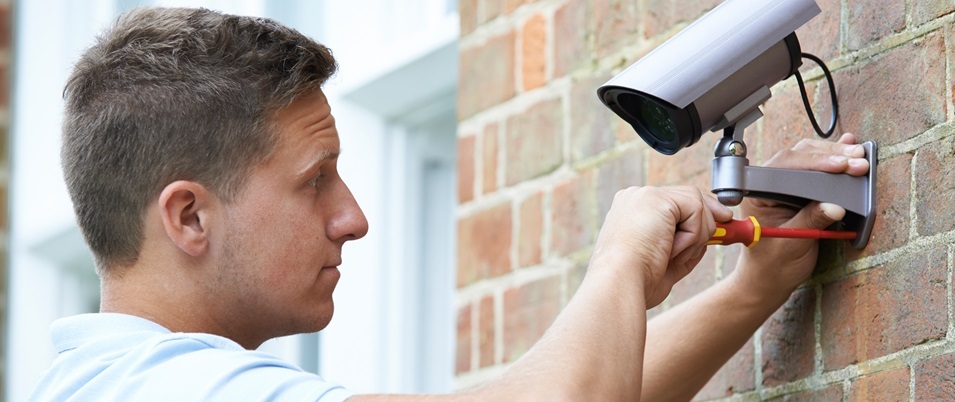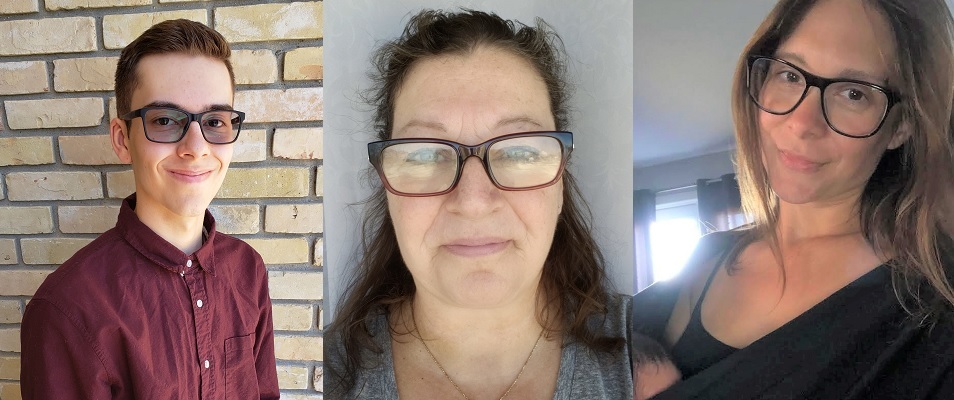
The past year and a half has been a challenge for most Manitobans. As COVID-19 swept through the world, everyone had to learn to navigate it and find a place of comfort and safety as best they could.
For some, the daily changes brought have been overwhelming. For others, there’s been unimaginable loss and fear.
For most, the changes have perhaps been less dramatic. Less dramatic, yes, but still life-altering. Tasks as simple as going to the grocery store have become ordeals: “Do I have my mask? Has the store changed its hours? Will I have to wait in line outside to make sure there aren’t too many people inside? Can I use the tap feature on my card to minimize touching surfaces?”
Perhaps, in the process, we’ve all developed a touch of social anxiety.
We’ve also learned a host of new words and phrases—social distancing, cohorts, herd immunity, flattening the curve—and to a large extent done our best to follow the rules, often out of an abundance of caution.
Then there’s been the daily briefings by government officials, who every day have told us what we could and couldn’t do. Some will have watched these briefings with relief, knowing that the government is watching out for us. For others, it has felt like a massive affront to our collective rights and freedoms.
The Citizen spoke with several members of our local communities to better grasp how the pandemic has affected them—and most importantly, how they believe their lives might change as things begin to get back to the way they were in pre-pandemic times.
The Sting of Loss and Isolation
Stefan Bardal, a University of Manitoba student, has plenty of thoughts on how the pandemic has affected him personally.
“I’m a pretty big introvert, and most of my communication with friends is over the internet anyway, so the quarantine didn’t have as large of an impact on my life as it did on others,” admits Bardal. “Although I certainly found myself wishing I could meet up with friends more, even if I wouldn’t under normal circumstances.”
Shari Davey, a lifelong resident of Niverville, had similar sentiments. She, too, doesn’t think of herself as being extremely social. And yet it’s been difficult to distance herself from family.
“It was strange to literally drive by family members’ houses and toss gifts to my children and grandkids,” says Davey. “It was difficult to go months without hugging my elderly mother. Having online church was also very different since community and relationships are such a big part of church life.”
Nicole Savard is a local mom of two teenagers. She says this has resulted in some profoundly lonely times over the last year and a half.
“Special celebrations have felt more sombre since my children and I couldn’t always be with my parents due to the restrictions,” Savard laments. “I have felt very much ‘on hold’ since March of 2020.”
These feelings are widespread, and shared by fellow Niverville resident Pamela Stoesz.
“I have struggled with my mental health, experiencing feelings of isolation, failure to provide for my family, inability to focus on and complete tasks, and concern for myself, my family, and my community,” says Stoesz. “In the last couple of months, I have improved my mental health with meditation, addressing thought distortions, a healthy diet and exercise—mainly hiking and walking—and being present in the moment.”
For Stoesz, helping her children navigate the crisis has been especially challenging.
“My children are missing their friends,” she adds. “Even though they understand why we’ve been limiting contact, including home-schooling, I can see that it’s getting to them. My daughter in particular, who’s two, struggles with this when we’re out for a walk or hike. She’ll cry out ‘My friends!’ while reaching out for the passing child or pet, and it breaks my heart to explain that she can’t stop and play.”
Janine Ivey, a local retiree, can relate, having experienced many of these same feelings.
“Not being able to hug our two grandsons was unbearable at times!” Ivey agrees. “With life being semi-normal at the moment, we sure appreciate what we have and don’t take anything for granted.”
Unfortunately, Ivey says that she has lost much more than time with her grandsons over the course of the pandemic.
“I lost two cousins, a longtime schoolfriend from ‘back home’ in Ontario, and a co-worker here in Niverville to COVID-19,” she says. “It’s a helpless and hopeless feeling one has when you can’t even see, talk, comfort, or just hold hands with your special person in their time of need. No goodbyes.”
Another local resident, Melanie Hogan, has felt the familiar sting of isolation—but for a different reason. Hogan has chosen not to vaccinate and she is sad to say that the decision has led to difficult arguments with her family members.
“I feel less free and less entitled to my opinion,” says Hogan. “No movie theatres, dine-in restaurants, or fun places to take our kids… I feel barred to my home! Having to home-school an eight-year-old while nursing my newborn daughter. Things have been absolutely wild.”
Due to pandemic restrictions, Hogan was unable to bring the father of her child to her ultrasound appointment while pregnant.
“That’s something he can never go back and do over,” she says.
Realities of Pandemic Work
Professionally, there were few positives for some of the locals The Citizen spoke to.
Savard says that she has quite enjoyed working from home. For financial reasons, there are many conferences she normally wouldn’t be able to attend, but because of the pandemic she was able to use videoconferencing to take part without the need for travel.
But most people don’t see much to be positive about when it comes to working through the pandemic.
Davey had recently retired from teaching at Niverville Elementary School but chose to go back to work in November when class sizes were reduced by government regulations, creating the need for more teachers.
She says that teaching young children amidst the pandemic was particularly difficult.
“We were required to wear masks and follow a variety of new guidelines over the past months,” says Davey. “But many of these guidelines were difficult as a teacher of young children, who needed reassurances and a certain understanding of the changes both at school and in their community. It was especially difficult to keep children physically distanced and find creative ways to teach when so many of our usual methods were no longer available.”
Like so many others, Stoesz took a big professional hit due to the pandemic and its restrictions. Pre-COVID, she ran a popular daycare in Niverville.
“At first, I decided not to replace clients who left the daycare, which decreased my wages but not the number of hours worked,” Stoesz says. “Then, as things got worse, I temporarily closed and then finally closed indefinitely. I have family members who are at high risk and I couldn’t live with myself if the daycare caused their death.”
Stoesz says she was frustrated at points about the Town of Niverville’s response to COVID-19, citing a lack of information regarding social distancing at the beginning of the pandemic. Many people seemed confused by the regulations at first, she says, ultimately souring her feelings on providing childcare.
That said, Stoesz has used the unexpected change in circumstances to undertake some personal and professional development. She recently decided to go back to school, taking online courses to eventually earn a bachelor’s degree in computer science.
As for Hogan, she’s currently on maternity leave, but before that she was working in retail and found it challenging, especially when it came to the regular disagreements and confrontations she had with customers about mask-wearing.
“The awkwardness of having to tell a customer to put a mask on… that should never be something we should have to do,” Hogan says. “We have no authority to do so, so why should we be doing it?”
As a university student, Bardal says his education experience was rocky, to put it mildly. Everything about his life as a student changed to a large degree.
“COVID-19 hit at the end of my first year,” Bardal says. “The professors were in unknown territory just as much as we students were. I’m in the Faculty of Science, so I had a lot of labs that transitioned to an online format, which was often poorly executed, due largely to a lack of planning time.”
By the fall term, he says that the experience became somewhat smoother, with professors and school staff having had more time to work out their plans. Still, many aspects of school were new and unfamiliar.
“Second years like me had just gotten into a routine attending classes on campus, and that all got thrown off when we changed to entirely online lectures,” he adds. “There were convenient parts, like not having to drive to campus, sleeping in until just before class, more courses offering lecture recordings… things like that. But the lack of social interaction with other students took away a lot from the university experience, I found. Not to mention exams either being open book and very difficult, or invigilated over Zoom call and ten times as stressful as in person.”
Transitioning to “Normal”
The big question on people’s minds this summer is how they will transition to something approximating normal. Pandemic restrictions in Manitoba are gradually easing, especially for those who are fully vaccinated, as the daily case counts and rate of hospitalization drops to the lowest levels since last fall.
In his press briefings, Dr. Brent Roussin, Manitoba’s chief provincial health officer, has cautioned Manitobans that even as we move more quickly to reopen, our everyday activities continue to come with a degree of risk.
Although Manitoba will soon be post-pandemic, he reminds people, it will not necessarily be post-COVID.
To that point, everyone’s risk tolerance is a little different. Just because dining in restaurants, seeing movies, and going to sporting events are now allowed doesn’t mean everyone is eager to go.
One big question is whether we’ll continue to wear masks. For now, the province is still mandating mask use in public places, but eventually that requirement will be dropped, rendering it a mere guideline.
Savard says she might still wear a mask after the rule goes away if she isn’t feeling well.
“I could see possibly wearing a mask if I had to go out while sick, but the only places I’d likely be going would be the pharmacy or medical clinic,” Savard says. “I’ll likely be staying home rather than going out, even if it’s because I have a cold.”
Stoesz has a similar mindset. “Once we reach a high vaccination rate, I won’t wear a mask unless I’m sick. If I have a common cold but can still productively go about my day, I will wear it. I think it’s a good compromise between staying at home and losing productivity unnecessarily and proceeding as normal, risking infecting others. I hope others do the same. I experienced fewer colds this past year, and I credit masks for that.”
Davey will continue to enjoy the protection of a mask for a while. Right now, she says that she feels more comfortable and confident in a crowd when masked.
“I am tired of wearing a mask, though,” Davey remarks. “It is hot and uncomfortable and, more than the physical aspect, it hides our expressions. I like to read people’s faces and show others my smile of friendliness, welcome, or gratitude.”
For Ivey, the decision will come down to the recommendations of health professionals.
“We have always followed the guidelines and will continue,” says Ivey. “With these new variants, I have a feeling we will have to mask up in public for some time yet.”
But Bardal isn’t sure about wearing a mask. “I think I will continue to carry one on me at all times, but given the choice to wear it, I likely won’t. Perhaps in a crowded store, or an area I think appears unsanitary, I’ll put one on. Certainly if I’m ever feeling under the weather, which is something I hope all people begin doing if they hadn’t already. And if a store asks that customers wear one, I will happily oblige.”
Not everyone feels the same way. Hogan says that she has a medical exemption from wearing a mask—but even if she didn’t, she wouldn’t wear one. She says that mask-wearing gives people a false sense of security, and she honestly believes masks may cause more harm than good.
Post-Pandemic Life
Stoesz feels that her entire life has drastically changed and will continue in that vein in a post-pandemic world. She does plan to reopen her daycare, although she’ll shift her focus to earning her bachelor’s degree. Part of the shift will see her focus on school-age children.
Davey doesn’t know how much her life will change in the coming months, but she says that she hopes she has learned from living through a pandemic.
“I hope I have learned lessons about appreciating health, family, freedom, and medical expertise,” Davey says.
Ivey is more specific about the ways she expects her everyday life to change as more freedoms are reintroduced.
“We’ll probably stay away from buffet-style restaurants, and sanitizers and disinfecting wipes will be readily available at all times in my purse,” says Ivey. “We’re creatures of habit, so yes, I believe we will get back to normal—someday. It will be a slow transition, I think.”
Bardal likes to think she will make some changes to how he lives his life—such as becoming more adventurous, trying harder to have new experiences, and going out in public more often.
“More likely, I’ll slip into the same routines as before,” he acknowledges. “Especially since university only allows so much free time. But I’ll certainly always think to myself, ‘Would I wish I could do this if we were still in quarantine?’”
Savard feels that life will more or less go back to how it was before. In fact, she’s eager to return to large events and says that COVID hasn’t made her afraid of germs or crowds.
For her part, Hogan says that she would love to be able to snap her fingers and have things just return to the way they used to be. But she doesn’t think that’s possible.
“The future is looking a little grim,” she says about her own circumstances as an unvaccinated person. “It’s looking a lot like I won’t be able to travel without having to quarantine, possibly not eat inside a restaurant with friends or family that doesn’t live with me… the future is kind of scary.”
How People Have Changed
One thing that everyone seems to agree on is that the pandemic has changed us. People disagree on the specifics, but it’s hard to argue that our perspectives aren’t different than they were a year and a half ago—our perspectives on our fellow human beings and on the world as a whole.
“I’m concerned by the anti-science mentality I’ve seen during the pandemic,” says Stoesz. “I was aware that it existed, but the pandemic showed just how prevalent it is.”
Bardal agrees with Stoesz, noting that he has seen a lot of ugly qualities in his fellow man, and these qualities are much harder to ignore now that they’ve been brought out into the open.
“[There is] a lot of closedmindedness, misplaced scepticism, fear-mongering, and general disrespect to other people and their personal choices,” Bardal says. “All that certainly makes me worry about if a more serious global threat comes around in the future, whether we’ll be able to handle it like intelligent, civilized humans or not.”
Even though Hogan is the only respondent who has chosen not to vaccinate, her feelings on how people have changed remain similar to the others.
“I never thought something like this would divide us,” Hogan says. “We should be actually ‘in this together,’ like people say, but I feel like because I am [mask-exempt], people look at me like I’m selfish, and because I won’t get the vaccine I’m selfish. I don’t look at them like they are selfish. I am happy that they feel comfortable enough to do what they feel is necessary. I’m just unable to trust it yet.”
The Goodness of People
But people haven’t necessarily changed for the worse. Bardal says that despite some concerning trends, he is still reassured by what he sees in many of people he’s closest with.
“COVID has also shown me that many people, arguably the majority of people I know, are very caring, compassionate, and empathetic in times like these, and they always try to help out their peers,” he says. “I will try to focus on those good aspects of people in times of crisis, rather than the negative ones, because it’s easy to lose faith in humanity if you don’t give people the benefit of the doubt.”
As for Savard, she says that believes even more strongly now in the essentially goodness of most people.
“So I’m not afraid for my children or myself to go about living our lives,” she says. “I know that there will always be evil in the world, but I’m not consumed by it.”
Davey says that she would like to use the lessons she learned during the pandemic as an opportunity for growth.
“I want to improve my tolerance of other people’s beliefs and work at understanding their points of view where we may differ,” Davey says. “I know we have all gotten tired of the slogan ‘We’re all in this together.’ However, it is true… hopefully there can be a drawing together and understanding of what we have all been through—apart, yet in the same situation.”
Ivey, who has lost so much, also sees important lessons in all the shared trauma.
“This pandemic makes one realize how small our world is and how important it is to take care of each other,” she adds. “Always count our blessings and never take anything for granted! Be kind to everyone.”





